NEW YORK CITY: With the Lebanese prime minister warning that up to 1 million people might be displaced amid war in his country, a top official with the UN High Commissioner for Refugees official has sounded the alarm on the “numbing” of the world to human suffering, and the difficulty of responding to crises in Lebanon, Sudan and elsewhere.
A “massive increase in displacement” is taking place in Lebanon, warned Raouf Mazou, UNHCR assistant high commissioner for operations, appealing for the international community to overcome its crisis fatigue and support a humanitarian response to the conflict.
He was speaking to Arab News in New York City on the sidelines of the 79th UN General Assembly.
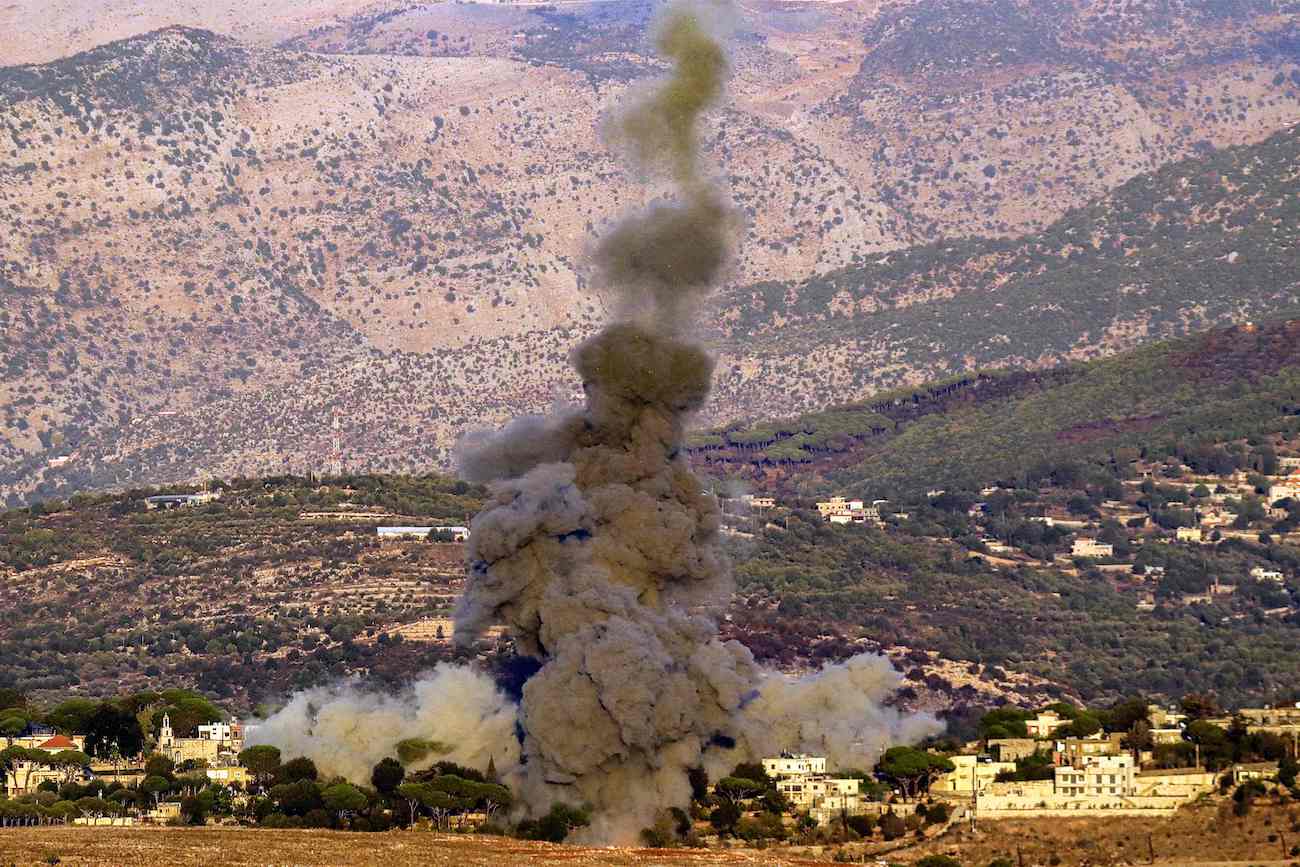
A smoke plume erupts after an Israeli airstrike targeted the outskirts of the village of Ibl al-Saqi in southern Lebanon on September 30, 2024. (AFP)
It comes as Israel ramped up its aerial campaign across Lebanon, with strikes into the heart of Beirut and elsewhere killing hundreds of people last week.
The escalation has compounded woes for the UN’s refugee agency, which is battling crises in some of the world’s most impoverished and conflict-ridden countries.
Two of its workers were killed last week in Lebanon. The UNHCR said it was “outraged and deeply saddened” by the deaths.
Dina Darwiche, from the UNHCR’s Bekaa office in the country’s east, was killed alongside her youngest son as an Israeli missile struck her home on Sept. 23. Ali Basma, who worked with the agency’s Tyre office in the south, was also confirmed dead.
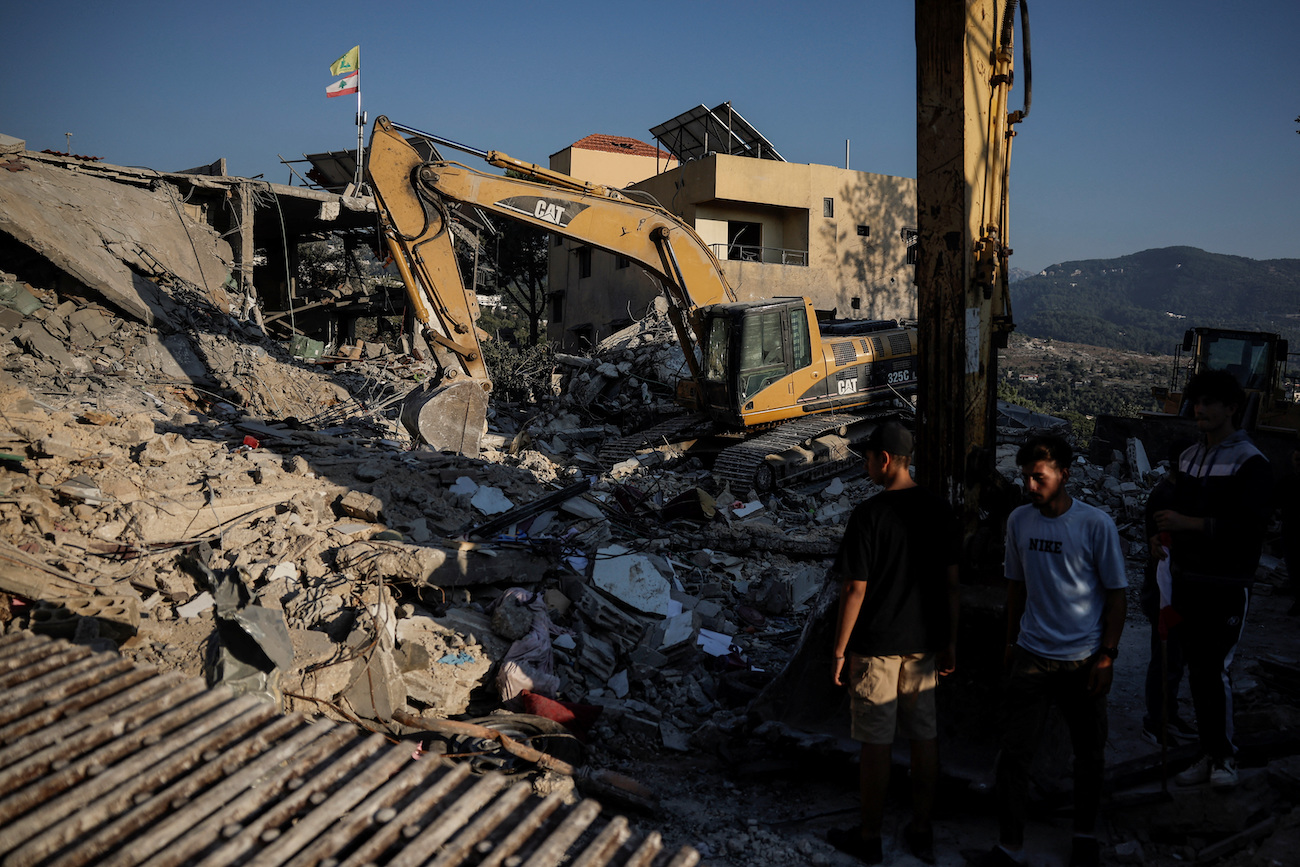
Men inspect destroyed houses that used to host displaced people from three families and their local relatives, after an Israeli strike in Maaysrah, north of Beirut, Lebanon, September 27, 2024. (Reuters)
“On our colleagues, it’s the drama of the context where civilian populations are the victims of indiscriminate bombing, indiscriminate airstrikes — this is what we’re observing,” Mazou told Arab News.
“They weren’t at work at the time when it happened. They were living their normal lives. But it reminds us of how civilians are exposed.
“In addition to that, we also have situations where colleagues in the course of their duty are targeted or find themselves killed.
“And that’s another concern that we have: humanitarian workers being exposed to danger as they’re performing their functions.
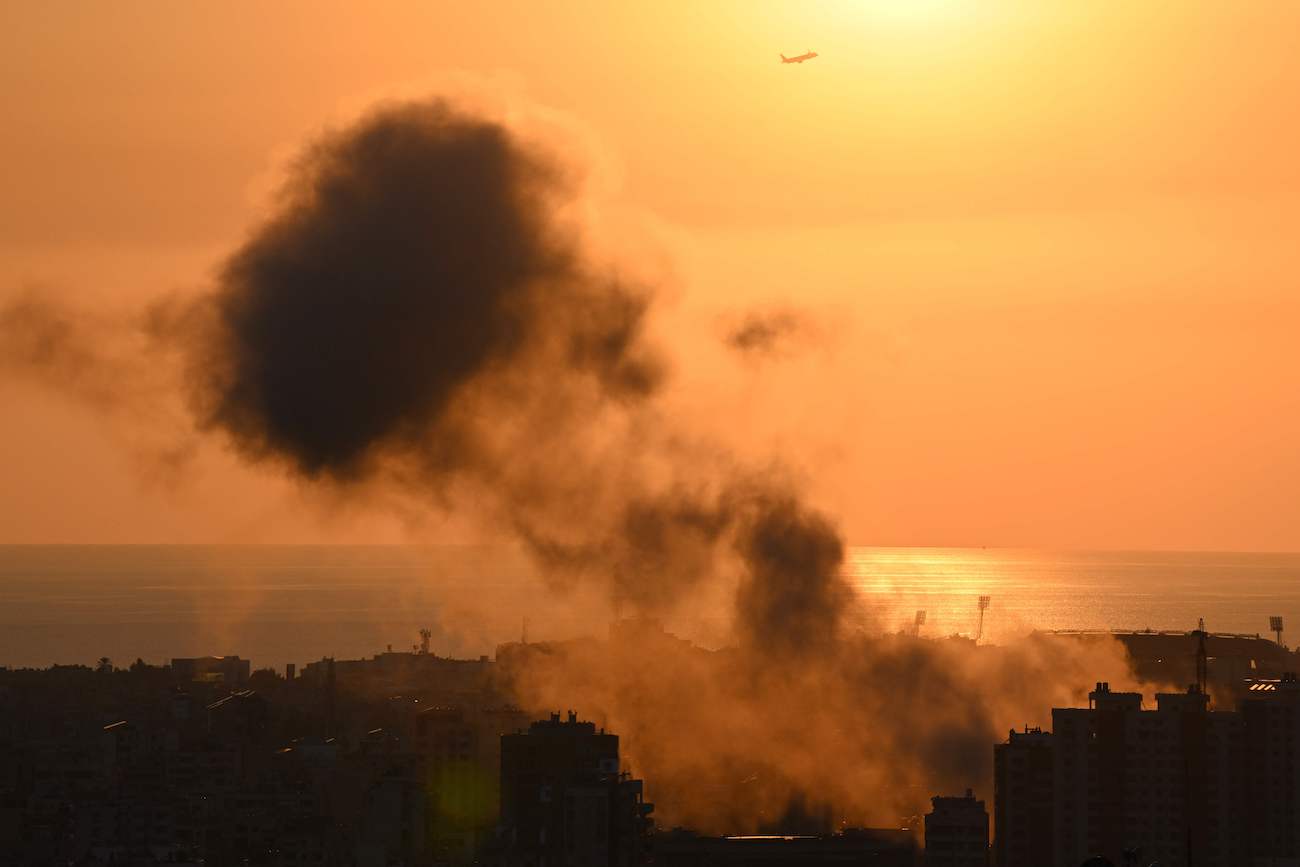
Smoke rises from the site of an Israeli airstrike on the Shiyah neighbourhood of Beirut's southern suburbs on September 28, 2024. (AFP)
“In this specific case it wasn’t — they weren’t at work — but still, this is something that to us, of course, is extremely concerning.”
The escalation in Lebanon is “not something the world needs right now,” Mazou added, warning that the “massive numbers” being displaced in the country also include the 80,000 Lebanese who fled to neighboring Syria in the past week, according to the government.
In response to the conflict, the UNHCR is executing its contingency plans and beginning distribution of pre-positioned aid, but urgently needs assistance as part of a wider international response, Mazou said, adding that it will also “strengthen its presence” to protect the most vulnerable.
But with conflicts in the region already raging in Sudan, Gaza, Syria and Yemen, there is a “difficulty” in mobilizing adequate resources for Lebanon, he said.
“We have core relief items already pre-positioned in the region which we can give fairly fast. We have the presence of colleagues. The presence of colleagues is absolutely essential. There are many other items that are necessary and which we’ll provide,” he added.
“We’re now coming up with an appeal that we’re going to issue, to ask for support from the international community.
“But that’s happening at a time when it’s already difficult to mobilize resources. There are many other crises around the world, so it’s already difficult. And now we have another crisis added to the existing one.
“So we’re very worried. We hope we’ll be able to mobilize, but we’re really appealing to the international community to provide the resources that are required.”
For Mazou, the proliferation of conflict has not only tested the logistical strength of the UNHCR, but has also “numbed” the global community to human suffering.
“We all become numb. There’s a new conflict, there’s a new crisis — we simply don’t have the normal reaction of outrage that we should normally have,” he said.
The result is that many of the countries receiving refugees from the world’s conflicts — some of which are already impoverished and unstable — are unable to provide sufficient protection and support.
Host countries are often “in very difficult situations” themselves and, faced with accepting millions of refugees, are too often left to handle the problem alone, Mazou said.
“They provide a global public good by receiving refugees, but they need the support of the international community.
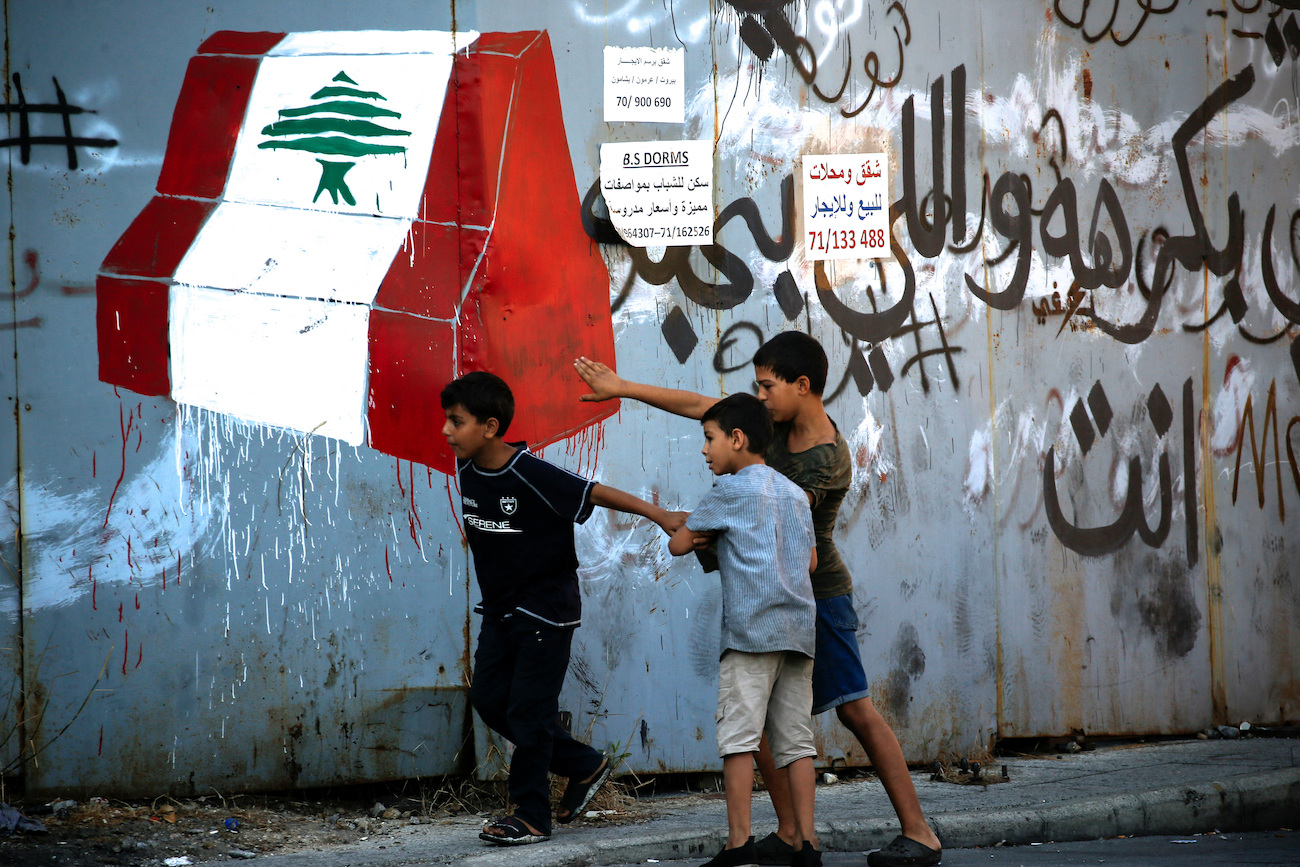
Children walk on the street as displaced people take shelter at a square after fleeing the Israeli strikes in central Beirut, in Lebanon September 30, 2024. (Reuters)
“If you don’t give that support, at the end of the day it’s the victims who are again exposed to more danger.”
Chad, for example, hosts about 2 million refugees, including from Sudan. “That’s completely untenable for a country that’s fairly poor, and also a country that’s suffering from the economic impact of the war in Sudan.
“The whole eastern part of Chad … now finds itself in a situation where it can no longer benefit from the economic trade that was taking place.
“It’s the countries which are receiving these refugees, whether it’s Chad, whether it’s the Central African Republic, whether it’s Libya, whether it’s Egypt — countries which are struggling in providing the protection and the system that’s required. They need the support of the international community,” Mazou said.
A lack of international support in the humanitarian response to crises has dire effects on the ground, meaning a greater risk of famine, sexual violence against women, and children losing access to education, he warned.
“The consequences are that you don’t provide the basic assistance that’s required, whether it’s food assistance with the risk of famine, women finding themselves exposed to sexual violence, or children who absolutely don’t have access to school. Children in Sudan haven’t had access to school for all this time.”
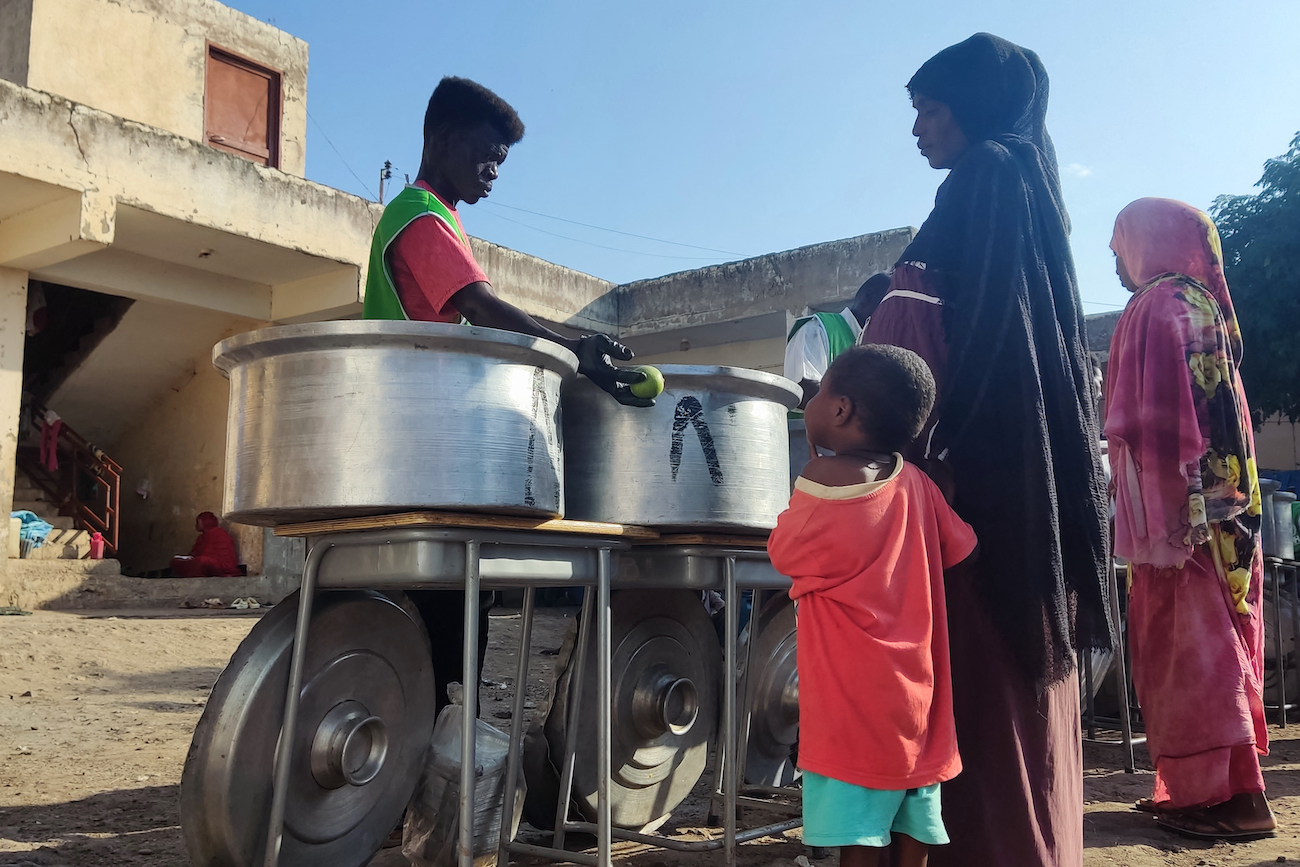
Displaced Sudanese queue for food aid at a camp in the eastern city of Gedaref on September 23, 2024. (AFP)
The civil war in Sudan has pushed the UNHCR’s mandate to its limit. After 17 months of conflict, the country is now victim to the world’s worst hunger crisis, and humanitarian agencies are struggling to respond.
More than 10 million people have been forcibly displaced from Sudan, pushed into neighboring countries and beyond, with the UNHCR recently declaring emergencies in Uganda and Libya related to the conflict.
At the UN this week, Filippo Grandi, the UNHCR’s high commissioner, recounted two visits to Sudan earlier this year, describing conditions there as “apocalyptic” and urging donors to fill the “severely underfunded” response plan.
“I can, frankly, hardly think of any other conflict where our, by now, chronic inability to bring about peace … is more in evidence than the Sudan conflict,” he said.
“If people don’t die because of bullets, they starve to death. If they manage to survive, they must face disease, or floods, or the threat of sexual violence and other horrifying abuse, which if perpetrated in other places would make daily headlines. It doesn’t in this situation.”
With famine declared at a displacement camp in El-Fasher in North Darfur, the UN’s main food relief body, the World Food Programme, is struggling to deliver aid to the country amid blocking by government forces and their Rapid Support Forces paramilitary rivals.
Humanitarian workers operating in Sudan have also been targeted or killed in deliberate attacks.
For Mazou and the UNHCR, opening access to aid in Sudan is of the utmost priority. “For us, it’s first making sure that humanitarian access is granted. We’ve been talking to the parties to the conflict. They know that they have the responsibility, they have accountability that they must provide humanitarian access. But that’s something that we keep on repeating,” he said.
“And then we need to have the resources to make sure that we can carry the humanitarian assistance that’s required to the populations in need in asylum countries first.
“I think it’s important in today’s world to underline the fact that asylum countries are willing to provide asylum, and that’s not the case everywhere,” he added, citing Chad, the CAR, Libya and Egypt.
Disputes, rivalries and buck-passing among developed countries on the issue of hosting refugees has been a matter of chronic concern for the UNHCR.
Grandi, as well as a host of humanitarian leaders, have long cited the contrasting reactions of many European countries to the Syrian and Ukrainian refugee crises as evidence of “double standards.”
European countries positioned on the edges of the continent — including Spain, Greece, Croatia and Italy — have engaged, openly or secretly, in violent pushback policies to turn back refugees at their borders, according to a series of reports published by Amnesty International in recent years.
In the years preceding the Russian invasion of Ukraine in 2022, many of the countries neighboring the latter had complained of an inability to shoulder the burden of hosting refugees from outside Europe, Mazou said.
But following the outbreak of the war, these countries “received several million” Ukrainian refugees, in a sign that “people do realize that it’s their responsibility to provide asylum” in a crisis, he added.
“That’s something that we must all underline,” Mazou said. “Not only the high commissioner, but a number of humanitarian leaders have stressed the importance of supporting countries regardless of where they’re located, to make sure that the assistance that’s required is provided.”
With the UNHCR drawing on all its resources to meet the mounting demands of refugees fleeing crises around the world, Mazou highlighted international support as the backbone of his agency’s operations.
“We have to put in place mechanisms, and to respond to the needs of the people,” he said. “We continue to appeal to make sure that the needs of all refugees around the world are responded to, and that we’re in the position of mobilizing for all countries around the world and not just one crisis.”






























